![398350_3513236107451_1168363475_3633366_1439500253_n[1] 398350_3513236107451_1168363475_3633366_1439500253_n[1]](http://lh5.ggpht.com/-E1kJgONyh4U/T4G8e8wgM_I/AAAAAAAABko/Ix1ctAC53lg/398350_3513236107451_1168363475_3633366_1439500253_n%25255B1%25255D_thumb%25255B4%25255D.jpg?imgmax=800)
Sunday, April 8, 2012
Wednesday, April 4, 2012
Angola 2012: Hoje, 04 de Abril, DEZ anos de paz e desenvolvimento
Lunda - Assinala-se hoje, 4 de Abril, o nono aniversário da assinatura do Memorando de Entendimento Complementar ao Protocolo de Lusaka, entre o Governo angolano e a Unita, acto que mudou o curso da História da República de Angola.
O acordo, realizado em 2002 no Palácio dos Congressos, em Luanda, e assistido pelo Presidente da República de Angola, José Eduardo dos Santos, e por representantes da comunidade nacional e internacional, simbolizou o fim de um longo período de guerra, que deixou milhares de deslocados, mutilados e órfãos.
A partir da assinatura do documento, o 4 de Abril foi instituído como feriado nacional e passou a ser, entre os angolanos, uma referência histórica importante na luta do povo, por marcar uma viragem decisiva no processo político e no de desenvolvimento de Angola.
A data constitui, igualmente, uma das maiores conquistas do povo angolano após a Independência Nacional, a 11 de Novembro de 1975. Actualmente, o país vive um ambiente de paz justa e definitiva, um momento particularmente importante na sua história, nunca antes experimentado pelo povo angolano, mesmo num passado longínquo, bem como desde o nascimento de Angola como um Estado independente e soberano.
Justa porque a paz alcançada não foi uma imposição de forças externas, mas o resultado de esforços dos angolanos, que entenderam que havia a necessidade da cessação das hostilidades e de encetarem o processo de conclusão das tarefas remanescentes do Protocolo de Lusaka, tendo em vista o estabelecimento da paz e a consequente reconciliação e reconstrução do país.
Pela primeira vez um protocolo visando a paz foi assinado, em território nacional, sem qualquer mediação externa. Esta paz corresponde aos interesses mais legítimos do povo angolano. É definitiva porque a paz conquistada está e deve ser consolidada no dia-a-dia dos angolanos, através de acções e atitudes práticas, devendo todos contribuir para que este processo seja irreversível.
É vontade dos angolanos que sejam removidos todos os factores do passado, de modo a se construir uma pátria unida, solidária e madura, orientada pelos valores da unidade nacional, da democracia, liberdade, justiça social e pelo respeito dos direitos humanos. Conquistada a paz, novos desafios se colocam ao povo angolano, pois torna-se necessário continuar a envidar esforços para a sua consolidação, através do desenvolvimento de um conjunto de acções, que visem combater a fome e a pobreza.
Deve-se também promover a tolerância e o respeito pela diferença de opiniões e filiação partidária, bem como incentivar o sentimento patriótico da população, sobretudo nas crianças e jovens, e fortalecer as instituições do Estado Democrático de Direito como premissa indispensável para encetar, com firmeza, novos passos rumo ao crescimento harmonioso do país.
Citando o Presidente da República, José Eduardo dos Santos, ”quem ama verdadeiramente a Paz tem de saber perdoar, reconciliar-se com o seu próximo, contribuindo assim para uma união verdadeira e sólida dos angolanos, sem prejuízo para as divergências que uns e outros possam expressar”.
Se a 4 de Abril de 2002 os angolanos deram um exemplo ao Mundo, nos dias 5 e 6 de Setembro de 2008 confirmaram esta maturidade, elegendo com civismo, num clima de paz, harmonia e fraternidade, sem recurso à violência verbal ou física, os deputados ao Parlamento.
Hoje, Angola está a conquistar o seu lugar no topo do contexto das nações africanas, quer a nível político e económico, quer desportivo.
Em Janeiro de 2010, o país realizou o Campeonato Africano das Nações (CAN-2010 Orange), que serviu para demonstrar ao mundo que Angola é uma terra de paz e de democracia. A província do Moxico acolheu este ano o acto central do 4 de Abril e foi presidido pelo ministro da Assistência e Reinserção Social, João Baptista Kussumua.
Per Wall Street Journal, le misure di austerity montiane stanno bloccando l’economia italiana
ROMA - «Le misure di austerity in Italia stanno bloccando l'attività nella terza principale economia dell'eurozona, secondo quanto appare dai dati economici più recenti che dimostrano come queste misure sono controproducenti». Lo scrive oggi il Wall Street Journal Europe in un articolo di prima pagina dal titolo L'austerità in Italia rappresenta una minaccia per l'economia.
Il giudizio. Citando i dati diffusi dal Mef lunedì scorso sul fabbisogno in calo nel primo trimestre, il Wsj afferma che «i recenti aumenti delle tasse stanno aiutando l'Italia a tagliare il suo deficit ma al contempo stanno spingendo l'attività economica a contrarsi ancora più velocemente». Secondo il Wsj Europe «lo scenario che si sta scoprendo ora in Italia, Grecia e Spagna lascerà i paesi problematici dell'eurozona con percentuali di debito pubblico ancora più alte anche se realizzano sforzi dolorosi per ridurlo».
Il Financial Times. Del pacchetto di austerity approvato a dicembre da Monti parla anche il britannico Financial Times che in un trafiletto in prima pagina parla di luna di miele finita tra il premier e gli italiani. Il rigore - si legge sul giornale della City - fa sentire i suoi effetti sul prezzo della benzina e sulle bollette e la popolarità del governo ne risente.
Mercoledì 04 Aprile
Thursday, March 29, 2012
Huambo: Feliciano Saiminho "Mágico", Repórter da TPA morre na sequência do acidente de helicóptero
Luanda - O repórter de imagem da Televisão Pública de Angola (TPA) Feliciano Saiminho "Mágico" morreu na sequência do despenhamento do helicóptero do tipo Allouette 3, ocorrido por volta das 14h00 desta quarta-feira quando se deslocava da cidade do Huambo para a do Kuito (capital da província do Bié).
Em declarações à Angop, o segundo comandante provincial da Polícia Nacional no Bié, Filomeno Araújo, informou que do acidente da aeronave pertencente a Força Aérea Nacional também faleceu o seu co-piloto, Manuel André.
Segundo o comandante, os jornalistas Samuel Lussati e o repórter de imagem Sérgio Bravo, ambos da TPA, e o piloto do helicóptero, Alcides Valdemiro, encontram-se em estado grave no Hospital Central do Huambo, onde estão a ser assistidos.
O jornalista Alexandre Cose que se encontrava também na aeronave está a ser observado no referido hospital.
O aparelho foi localizado hoje na localidade de Lunundo entre as margens do rio Cutato, a cerca de 60 quilómetros da cidade do Huambo.
Iniciadas às 17h00 de quarta-feira, as buscas foram feitas nas localidades de Chitato, município do Chinguar, província do Bié, e de Chiumbo e Sanguengue, município do Catchiungo, província do Huambo.
Dois helicópteros auxiliaram as buscas nos locais referenciados, realizadas por efectivos das Forças Armadas Angolanas (FAA), da Polícia Nacional (PN), bem como dos serviços de protecção civil e bombeiros, envolvendo também quadros do governo da província e populares.
29 de Março de 2012, 15:12
4 de Abril de 2012 - Grande Festival da Paz com todos grandes nomes da Musica Angolana
Vem Ai o Grande Festival da Paz. com todos grandes nomes da Musica Angolana, A Produção é da Banda.... contamos contigo para Celebrar a Paz....
Tuesday, March 27, 2012
O acordo ortográfico e o futuro da língua portuguesa, por “A Biblioteca de Jacinto”
Tem-se falado muito do Acordo Ortográfico e da necessidade de a língua evoluir no sentido da simplificação, eliminando letras desnecessárias e acompanhando a forma como as pessoas realmente falam.
Sempre combati o dito Acordo mas, pensando bem, até começo a pensar que este peca por defeito. Acho que toda a escrita deveria ser repensada, tornando-a mais moderna, mais simples, mais fácil de aprender pelos estrangeiros.
Comecemos pelas consoantes mudas: deviam ser todas eliminadas. É um fato que não se pronunciam. Se não se pronunciam, porque ão-de escrever-se? O que estão lá a fazer? Aliás, o qe estão lá a fazer?
Defendo qe todas as letras qe não se pronunciam devem ser, pura e simplesmente, eliminadas da escrita já qe não existem na oralidade. Outra complicação decorre da leitura igual qe se faz de letras diferentes e das leituras diferentes qe pode ter a mesma letra.
Porqe é qe assunção se escreve com ç e ascensão se escreve com s?
Seria muito mais fácil para as nossas crianças atribuír um som único a cada letra até porqe, quando aprendem o alfabeto, lhes atribuem um único nome. Além disso, os teclados portugueses deixariam de ser diferentes se eliminássemos liminarmente o ç. Por isso, proponho qe o próximo acordo ortográfico elimine o ç e o substitua por um simples s o qual passaria a ter um único som.
Como consequência, também os ss deixariam de ser nesesários já qe um s se pasará a ler sempre e apenas s. Esta é uma enorme simplificasão com amplas consequências económicas, designadamente ao nível da redusão do número de carateres a uzar. Claro, uzar, é isso mesmo, se o s pasar a ter sempre o som de s o som z pasará a ser sempre reprezentado por um z. Simples não é? Se o som é s, escreve-se sempre com s. Se o som é z
escreve-se sempre com z.
Quanto ao c (que se diz cê mas qe, na maior parte dos casos, tem valor de q) pode, com vantagem, ser substituído pelo q. Sou patriota e defendo a língua portugueza, não qonqordo qom a introdusão de letras estrangeiras. Nada de k.
Não pensem qe me esqesi do som ch. O som ch pasa a ser reprezentado pela letra x. Alguém dix csix para dezinar o x? Ninguém, pois não? O x xama-se xis. Poix é iso mexmo qe fiqa. Qomo podem ver, já eliminámox o c, o h, o p e o u inúteix, a tripla leitura da letra s e também a tripla leitura da letra x. Reparem qomo, gradualmente, a exqrita se torna menox eqívoca, maix fluida, maix qursiva, maix expontânea, maix simplex. Não, não leiam simpléqs, leiam simplex. O som qs pasa a ser exqrito qs u qe é muito maix qonforme à leitura natural.
No entanto, ax mudansax na ortografia podem ainda ir maix longe, melhorar qonsideravelmente.
Vejamox o qaso do som j. Umax vezex excrevemox exte som qom j outrax
vezex qom g. Para qê qomplicar?!? Se uzarmox sempre o j para o som j não presizamox do u a segir à letra g poix exta terá, sempre, o som g e nunqa o som j. Serto? Maix uma letra muda qe eliminamox. É impresionante a quantidade de ambivalênsiax e de letras inuteix qe a língua portugesa tem! Uma língua qe tem pretensõex a ser a qinta língua maix falada do planeta, qomo pode impôr-se qom tantax qompliqasõex? Qomo pode expalhar-se pelo mundo, qomo póde tornar-se realmente impurtante se não aqompanha a evolusão natural da oralidade?
Outro problema é o dox asentox. Ox asentox só qompliqam! Se qada vogal tiver sempre o mexmo som, ox asentox tornam-se dexnesesáriox. A qextão a qoloqar é: á alternativa? Se não ouver alternativa, pasiênsia.
É o qazo da letra a. Umax vezex lê-se á, aberto, outrax vezex lê-se â, fexado. Nada a fazer. Max, em outrox qazos, á alternativax. Vejamox o o: umax vezex lê-se ó, outrax vezex lê-se u e outrax, ainda, lê-se ô. Seria tão maix fásil se aqabásemox qom isso! Para qe é qe temux o u? Para u uzar, não? Se u som u pasar a ser sempre reprezentado pela letra u fiqa tudo tão maix fásil! Pur seu lado, u o pasa a suar sempre ó, tornandu até dexnesesáriu u asentu.
Já nu qazu da letra e, também pudemux fazer alguma qoiza: quandu soa é, abertu, pudemux usar u e. U mexmu para u som ê. Max quandu u e se lê i, deverá ser subxtituídu pelu i. I naqelex qazux em qe u e se lê â deve ser subxtituidu pelu a. Sempre. Simplex i sem qompliqasõex.
Pudemux ainda melhurar maix alguma qoiza: eliminamux u til subxtituindu, nus ditongux, ão pur aum, ães ou melhor ãix - pur ainx i õix pur oinx. Ixtu até satixfax aqeles xatux purixtax da língua qe goxtaum tantu de arqaíxmux.
Pensu qe ainda puderiamux prupor maix algumax melhuriax max parese-me qe exte breve ezersísiu já e sufisiente para todux perseberem qomu a simplifiqasaum i a aprosimasaum da ortografia à oralidade so pode trazer vantajainx qompetitivax para a língua purtugeza i para a sua aixpansaum nu mundu.
Será qe algum dia xegaremux a exta perfaisaum?
(da autoria do blogue "A Biblioteca de Jacinto")
Thursday, March 22, 2012
FERNANDO PESSOA OS SEUS RECEIOS COM O ACORDO ORTOGRÁFICO DE 1911
"Não tenho sentimento nenhum politico ou social. Tenho, porém, num sentido, um alto sentimento patriotico. Minha patria é a lingua portuguesa. Nada me pesaria que invadissem ou tomassem Portugal, desde que não me incommodassem pessoalmente. Mas odeio, com odio verdadeiro, com o unico odio que sinto, não quem escreve mal portuguez, não quem não sabe syntaxe, não quem escreve em orthographia simplificada, mas a pagina mal escripta, como pessoa própria, a syntaxe errada, como gente em que se bata, a orthographia sem ípsilon, como escarro directo que me enoja independentemente de quem o cuspisse.“
Fernando Pessoa
Monday, February 27, 2012
Sunday, February 26, 2012
Dr. Agostinho Neto, pensamento democrático e funções de um governo democrático
GRÉCIA INVENÇÃO E CRISE DEMOCRÁTICA. A política é a gestão dos vários interesses sociais, assim reza um antigo texto grego. Me refiro mesmo a Grécia, caro leitor e estimada leitora. Me debruço sobre a terra dos grandes filósofos que souberam sintetizar e sistematizar conhecimentos milenários de vários campos do saber humano, de modo que que o futuro “dos seus” fosse ainda melhor que o passado já glorioso. Falo da Grécia, o anel débil da Unidade Europeia, que hoje vive um dos piores momentos desde a sua constituição como República livre e independente.
No momento em que teço estas considerações é cada vez mais claro para todos os analistas e interessados aos problemas europeus, que a causa fundamental da crise que atanalha o país de Sócrates, de Platão, de Aristóteles e outros grandes filósofos – além da crise das dívidas estatais - é a corrupção do seu sistema democrático, político e institucional. Este “facto de coisas” traduziu-se na desarticulação da maior parte todas as instituições que constituem um Estado democrático e posterior exposição das debilidades financeiras nos mercados especulativos.
É uma triste conclusão, porque o sistema democrático é uma das várias riquezas do passado helênico, elaborado para que o povo controlasse o próprio destino. Este sistema é a síntese de um passado glorioso, que serve a orientar a melhor estrada para os governados e os governadores na complexa estrada do progresso social. A codificação do sistema se chama hoje: CONSTITUIÇÃO.
O PODER DO POVO. Pois bem, em democracia, o poder é do povo e para o povo. Ninguém assume o poder se não através do povo, que o elege e o sustem. As eleições obedecem uma série de regras e critérios que os vários países elaboram a fim de evitar zonas de sombra no processo de assunção e gestão legítima do poder.
O poder que os cidadãos confiam aos partidos políticos e à inteira classe dirigente serve a legitimar às suas acções em prol das iniciativas pelo bem comum. O processo eleitoral é uma espécie de diálogo, fim do qual o povo escolhe, entre as várias propostas, aquela que mais se aproxima aos seus anseios presentes e futuros. E como se o povo dissesse: “Assuma o poder e resolva os nossos problemas”. Se o mandato não é respeitado, no próximo pleito eleitoral o partido político e os líderes que o representam perdem a confiança do povo, e portanto às eleições. Esta é a fotografia da interacção política e social de uma democracia madura.
AGOSTINHO NETO E A DEMOCRACIA. A visão política do pai da nação angolana, o doutor António Agostinho Neto, já obedecia tais regras, isto, não obstante o contexto político que se antevia, aquele do partido único já em marcha em outros países africanos. Por isso afirmava: "O mais importante é resolver os problemas do povo". O bem estar do povo é o horizonte inicial e final de qualquer boa acção política.
É nesta ordem de ideias que às sociedades civis, às organizações sociais de várias ordens e categorias têm o direito de criticar às acções dos governos eleitos ou não. Aceitar às críticas é questão de boa educação e ampla visão política e cultural sobre o desenvolvimento dos povos e das sociedades.
Com frequência, as elites de poder e no poder, criticam às organizações sociais por passarem o tempo apontando os colossais e menores erros de governação. "O que fazem vocês além de criticaram e manifestarem exigências e necessidades?" Esta é uma das perguntas de baixa retórica usadas sem o mínimo sentido responsável da própria posição institucional e dever político o social. Assim fazendo, muitos governantes se esquecem o porque ocupam tais posições. Os dirigentes estão aí para resolverem os problemas do povo e se estes persistem, às estradas são duas:
1) Criação de mecanismos de participação social. Que o Governo abra mesas de diálogo com os partidos da oposição e as organizações da sociedade civil. Ninguém tem no bolso todas as soluções para melhorar às condições de vida de um povo e admitir está dificuldade é já um passo avante.
2) Demissão e novas eleições. Quando um Governo, incapaz de resolver os problemas do povo, não admite as próprias dificuldades e nem entende abrir-se a um diálogo com a oposição e a sociedade civil a única estrada é a demissão e a realização de novas eleições. Fora disso é um harakiri político e consequente decadência social para o próprio povo.
A sociedade civil tem em si às melhores qualidades de um povo por isso o bom governante cria espaços de interacção e constante confronto com às organizações sociais. Para a questão angolana o confronto se torna obrigatório visto e considerando os enormes desafios que se apresentam a cada dia que passa.
Com o político, o doutor, o nacionalista, o poeta Agostinho Neto repetimos: "O mais importante é resolver os problemas do povo - ANGOLANO!"
Kingamba Mwenho
Por Angola, hoje e sempre!
Thursday, February 23, 2012
Os ensinamentos de Nandito o jovem que vivia do nada, por Kingamba Mwenho
A vida faz-se trabalhando arduamente todos os dias sem parar. Hoje começo a reflectir sobre os vários elementos que caracterizam a vida de um homem aparentemente sem futuro. Um homem com problemas de todos os tipos, um homem que vive a jornada e que se dependesse de si a morte seria a solução dos seus problemas.
Tempos atrás conheci um rapaz que passava os seus dias esperando as oportunidades que está lhe podia reservar, a esperança era tanta que convencida tudo e todos que convencida o sucesso na sua vida cairia do céu. O rapaz e esperou, mas nada acontecia. Esperou e esperou ainda, mas quando viu que tudo parecia igual aos anos passados, começou a entender que na vida nada caiu do céu e que o sucesso era fruto de grandes esforços.
Nandito, o moço da banda, aprendeu a lição, um ensinamento que serve para todos os jovens de todas as classes sociais: nesta vida, o bem-estar digno de ser vivido é sempre fruto de grandes esforços e sacrifícios inesquecíveis.
Nandito aprendeu também que ninguém vivia do nada, que das pedras vem pedra como do imobilismo vem a pobreza. Maior é o imobilismo, pior é a situação de vida do sujeito em causa. Mãos obra!
Kizomba Romana, se as Sextas-feiras os angolanos revivem a banda e matam saudades
Roma (17/02/2012) - Até as boas amizades precisam de encontros formais, mesmo que saltuários, para se reforçarem, para se reconfirmarem como únicas e indistrutíveis. É nesta ótica que os angolanos em Roma se encontram todas as Sextas-feiras nos Momentos de Kizomba Romana. Estes momentos estão se tornando uma tradição de grande cultura e crescimento humano. Começaram como simples eventos para angolanos, hoje constituem um indiscutível ponto de referência para os mwangolés e admiradores da cultura e style angolano.
Sobre os Momentos de Kizomba, outro aspecto peculiar, são as lições grátis de Kizomba e ensinamentos sobre a cultura angolana. Todas as Sextas-feiras se vê um via-vai de italianos e italianas, um via-vai africanos de vários países lusófonos, de modo particular os caboverdianos, um via-vai de africanos interessados a aprenderem a dança do momento: A KIZOMBA ANGOLA. De momentos o Kuduro se dança, não se ensina, portanto, Kizomba com eles.
A comunidade angolana em Roma é constituida essencialmente por estudantes universitários, por isso as saudades da banda são mais fortes, e quando as dificuldades materiais se fazem sentir os mwangolés gostam de estar juntos, mesmo quando não podem contribuir na resolução material dos problemas.
O empenho na formação faz com que a alta cultura se faça sentir no seio dos angolanos na cidade eterna. São muitas as ocasiões, durante os momentos de Kizomba, aonde se deparam angolanos debatendo com categorias sobre vários temas político-culturais, científicos e religiosos. Outro aspecto curioso e não menos importante, é a vontade férrea de muitos angolanos em ensinar aos italianos o melhor da nossa cultura. O angolano quando quer faz.
Ao contrário do que se diz em continuação, os angolanos são unidos quando querem, quando se sentem mais angolanos, quando vivem mais a própria cultura, quando se elevam além do pseudo-sentido patriótico que faz de todos os problemas da banda o factor de divisão entre os mwangolés em várias partes do mundo. Ao contrário do que se diz, muitos angolanos que terminam os seus estudos querem mesmo voltar pra banda, querem contribuir no crescimento e desenvolvimento sustentável de Angola. Um apelo às autoridades competentes, mais atenão angolanos em Roma, muitas boas cabeças se encontram nesta banda, se encontram aqui, dando o melhor de sí para o desenvolvimento da Italia.
Em fim, conversando com os angolanos aqui, pude tirar algumas conclusões: ser angolano é ter fé que juntos podemos construir uma Angola melhor. Ser angolano é ajudar os angolanos a crescerem, é trabalhar pela angolanidade do pensamento e da acção. Ser angolano é sentir-se mal de viver bem quando os outros ainda morrem de fome. Ser um verdadeiro angolano é contribuir pela difusão da nossa cultura, da nossa essência, da nossa visão da vida aonde a celebração das relações interpessoais constituem um momento de grande vitalidade humana. Ser angolano continuar a ser o respeito pela gerarquia: os cotas são Kotas.
Para conhecer os angolanos na Itália, para conhecer os angolanos em Roma, participe nos Momentos de Kizomba Romana. Foi este o pedido e o desafio com o qual terminei (as 04:00 da manha)o encontro com alguns mwangolés e suas "piós" depois de uma Grande Noite de Kizomba - A "Kizomba Carnival Night 2012".
Para informações:
Facebook: www.facebook.com/kizomba.romana
Websites: www.kizomba-romana.angolaxyami.com
Kingamba Mwenho
Por Angola, hoje e sempre!
Angola & Itália, melhores relações de cooperação desde a independência, por Kingamba Mwenho
A cooperação entre a República de Angola e a República da Itália nunca esteve melhor como nos últimos anos do presente século. Entre os dois países multiplicaram-se os encontros bilaterais, eventos que permitiram o aprofundamento das relações entre os dois povos em vários domínios de interesse comum. Se de um lado a Itália necessita das matérias primas angolanas para poder transformar e exportar-las, do outro lado, Angola necessita do know how italiano em senso lato: das suas tecnologias médicas e agro-alimentares; dos conhecimentos relativos as construções em terrenos acidentados; dos conhecimentos relativos aos sector industrial mecânico e dos transportes avançados. São sectores que a Itália tem empresas líderes na Europa e no mundo, um know-how precioso que pode ser útil para o desenvolvimento econômico de nosso país.
Na vertente puramente econômica, registou-se um aumento das trocas comerciais, aonde pela primeira vez Angola diversificou a sua oferta: o país meteu na balança comercial não só matérias primas, mas também bens pré-trabalhados e serviços. Isto constitui um crescimento qualitativo de grandes impacto, visto que as exportações constituem o motor do crescimento econômico de qualquer sociedade. Quanto mais as exportações forem diversificadas, mais équo é o crescimento da sociedade/país exportadora.
![vespa[1] vespa[1]](http://lh4.ggpht.com/-panmZL4t5XM/T0Zz8Dz5UjI/AAAAAAAABAA/zdcbDcENTQ0/vespa%25255B1%25255D_thumb%25255B2%25255D.jpg?imgmax=800) A confirmar as informações acima citadas, sublinhamos o mais recente e significativo evento na história da cooperação entre os dois países. Em 2011, deslocou-se para Angola, uma imponente delegação empresarial italiana encabeçada pelo vice-ministro italiano para o desenvolvimento econômico, Adolfo Urso. A mesma era composta por cerca de 80 empresários em representação de 54 empresas italianas, com o objectivo de aprofundar o conhecimento do crescente mercado angolano, e potenciar as relações comerciais entre os dois países. Já em Angola, a delegação transalpina participou no Fórum econômico, que decorreu no hotel Trópico, no qual esteve presente o presidente da Agência de Investimento Privado (ANIP), Dr. Aguinaldo Jaime (1), o representante da Associação Industrial de Angola (AIA), Dr. José Severino, e a figura máxima da Câmara de Comércio e Indústria, Dr. João dos Santos.
A confirmar as informações acima citadas, sublinhamos o mais recente e significativo evento na história da cooperação entre os dois países. Em 2011, deslocou-se para Angola, uma imponente delegação empresarial italiana encabeçada pelo vice-ministro italiano para o desenvolvimento econômico, Adolfo Urso. A mesma era composta por cerca de 80 empresários em representação de 54 empresas italianas, com o objectivo de aprofundar o conhecimento do crescente mercado angolano, e potenciar as relações comerciais entre os dois países. Já em Angola, a delegação transalpina participou no Fórum econômico, que decorreu no hotel Trópico, no qual esteve presente o presidente da Agência de Investimento Privado (ANIP), Dr. Aguinaldo Jaime (1), o representante da Associação Industrial de Angola (AIA), Dr. José Severino, e a figura máxima da Câmara de Comércio e Indústria, Dr. João dos Santos.
Segundo dados do Ministério da Economia angolano, a Itália é o décimo quarto importador dos nossos produtos no mercado internacional, e considerando a crescente importância da nossa economia, este país amigo e quer reforçar a própria presença. Apesar de ter apenas uma quota de mercado 2,4%, dados que significam 302 milhões Euros por ano, o ritmo de crescimento das trocas comerciais entre os dois países tem vindo a crescer vertiginosamente pelo que nos últimos quatro anos, o valor das trocas comerciais aumentaram 45% a cada ano.
É de salientar que a Itália foi o primeiro país Ocidental a reconhecer a independência de Angola, e como amante das relações internacionais aproveito para sublinhar quanto importante foi o apoio do Belpaese.
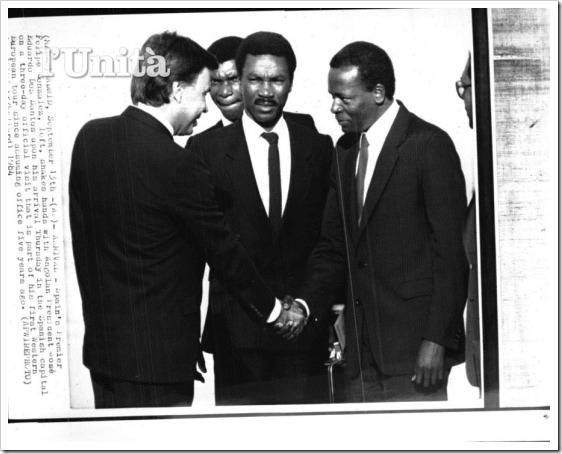
PR José Eduardo dos Santos durante um visita a Europa (Anos 70)
Nos anos sessenta e setenta muitos expoentes dos partidos italianos de esquerdas manifestaram-se em Milão e em Roma a favor da independência de Angola. A edição online, do jornal de esquerda "L'Unità", fundado pelo grande intelectual italianos, Antônio Gramsci, alberga uma galeria fotográfica com fotos históricas de Angola e de África. Grande relevo têm os eventos políticos daqueles anos visto que as ideologias antagonistas, nas maior parte das voltas, não contribuíam para a resolução de certos problemas.
Como nos anos sessenta e setenta, as relações entre Angola e a Itália, vivem hoje um rico momento no qual reina o respeito mútuo e se trabalha na busca de maiores e melhores oportunidades de cooperação econômica e cultural.
Kingamba Mwenho
Por Angola, hoje e sempre!
Cfr. TB - Webgrafia
1) http://www.anip.co.ao/Indicadores-Economicos.aspx
2) http://www.ambluanda.esteri.it/Ambasciata_Luanda
3) http://www.agenzianova.com/cooperazione/speciale/1/angola
4) http://archiviofoto.unita.it/ricercafa.php?key=angola
5) http://www.ambasciatangolana.com
6) http://www.minec.gov.ao/
Wednesday, February 22, 2012
Morreu Mateus Pelé do Zangado
Mateus Pelé do Zangado, 78 anos, exímio bailarino de danças de salão, morreu terça-feira em Luanda.
Nautral de Luanda, deliciou gerações de farristas das escaldantes noites luandenses dos anos 50, 60 e início da década de 70, tal como João Cometa e a finada Joana Pernambucano.
Thursday, February 16, 2012
Barack Obama, Catholics and contraceptives: “The accommodation”
IT IS not every day that Republicans can seize on an issue that encapsulates everything they hate about Barack Obama. The recent scandal over contraception comes close. Mr Obama had ordered that all employer-sponsored health insurance cover contraception. The president has ample reason to make contraception available, as my colleague describes here. Churches were exempt; institutions such as Catholic hospitals, which employ workers of all faiths, were not.
The bishops, naturally, went berserk, but so did conservatives. Making Americans buy health insurance was bad enough, an encroachment on personal liberty, they thundered. Making Americans pay for something they believe to be morally wrong was utterly unacceptable. This was government overreach of the most extreme kind.
The furore continued to build. In recent days Mitt Romney attacked the president for the rule. This inspired the usual meta jujitsu, as Mr Romney’s competitors attacked Mr Romney for the attack, which they judged to be insincere.
Given all this, it was almost inevitable that Mr Obama would capitulate, or in the words of his senior advisors, offer an “accommodation”. Today the White House announcedthat religious groups would not have to cover or subsidise contraception. Instead, insurers would be obliged to offer contraception free of charge, with the guarantee that the religious employers’ premium would not rise accordingly.
The Catholic Hospital Association and Planned Parenthood are each apparently placated by the change. On first blush it seems like a sensible solution to a tricky problem. But the fight won’t go away. The religious institutions are exempt because they believe contraception to be morally wrong. What about any individual business owner who feels the same way? Why not apply the exemption to him? Mr Obama may have stamped out today's fire but it is sure to flare up elsewhere.
After Steve Jobs 2012: China IP dispute threatens iPad exports (Problems for Apple)
Apple’s long-running dispute over the iPad trademark in China could threaten global shipments of the popular tablet as the company which registered the trademark in the country is seeking an export ban from Chinese customs.
![beijingipadlaunch2-100917[1] beijingipadlaunch2-100917[1]](http://lh3.ggpht.com/-61cgAwurFFk/TzxQ2p2YexI/AAAAAAAAA8k/S6nMIY2z3Rc/beijingipadlaunch2-100917%25255B1%25255D_thumb%25255B2%25255D.jpg?imgmax=800)
Proview Technology (Shenzhen), a struggling Taiwanese-owned electronics company in southern China, is asking the customs administration to seize iPads passing through Chinese ports for import or export, its lawyers said on Tuesday. The move raises pressure ahead of Proview Shenzhen and Apple’s latest round of negotiations this week aimed at settling the dispute.
It also highlights the risks for multinationals producing in China for the world market as Chinese law allows plaintiffs in intellectual property disputes to mobilise customs against the defendant.
“This is one of the most effective tools in intellectual property disputes in China,” said Kenny Wong, head of the IP practice at Mayer Brown JSM, the law firm. “Once you complain to customs, they have to act provided you have recorded your rights with them. With a Rmb100,000 [$15,900] bond, you can hold millions of dollars in goods.”
China’s official trademark database shows that Proview Shenzhen registered the iPad trademark in China as early as 2000. In 2006, Apple bought the iPad trademark for several markets, including the European Union, from Proview Taiwan, another affiliate of Proview International, the groups’ Hong Kong-listed holding company. Only after Apple started selling the iPad in China did it realize Proview Shenzhen’s claim to the trademark there.
In December, a Shenzhen court rejected Apple’s request to have the China trademark transferred to its name, a ruling that Apple has appealed against.
According to legal experts, it normally takes up to a month to record a patent or trademark with customs. After it is recorded, customs will seize shipments from a sender other than the rights holder if it discovers them during random checks. Rights holders achieve more regular shipment blockages if they tip off customs on incoming shipments.
When goods are seized under this procedure, a court has to decide on the infringement claims, but customs can fine the defendant and the shipments remain blocked for the duration of the court case.
In 2006, Hitachi was forced to stop using a hard disk trademark because a Chinese rival that owned the trademark had blocked the Japanese firm’s shipments through customs.
“Multinationals frequently use this against counterfeiters, but it is also being used by Chinese companies against foreign firms,” said Li Yongbo, an IP expert with Jijia, a Beijing law firm. He said many foreign companies failed to register trademarks in China because they were not aware that this mattered for exports as well.
“Apple appears not to have done its due diligence properly in this case,” said Mr Wong. “Of course they are well-known and everyone now knows the iPad name in connection with them, but in this case, the trademark is owned by somebody else. They can’t keep selling under a trademark that they don’t own.”
Apple said that it bought Proview’s worldwide rights to the iPad trademark in 10 different countries several years ago. “Proview refuses to honour their agreement with Apple in China and a Hong Kong court has sided with Apple in this matter. Our case is still pending in mainland China,” it said.
A customs spokesman declined to comment.
By Kathrin Hille in Beijing
Email ftsales.support@ft.com to buy additional rights. http://www.ft.com/
Wednesday, February 8, 2012
Cantor Wando, conhecido pelo sucesso 'Fogo e Paixão', morre aos 66 anos
http://www.youtube.com/watch?v=2nTg5wkhLPo
DVD Wando Ao Vivo. Fogo e Paixão Wando Composição: Rose Você é luz É raio estrela e luar Manhã de sol Meu iaiá, meu ioiô Você é "sim" E nunca meu "não" Quand...
•| Conoscere x Decidere - http://www.ecumene24.com |•
Saturday, February 4, 2012
ANGOLA RECORDA OS HERÓIS DO 4 DE FEVEREIRO - início da Luta Armada de Libertação Nacional
Angola recorda e presta hoje homenagem aos heróis do 4 de Fevereiro, no dia em que se assinala o 51º aniversário do início da Luta Armada de Libertação Nacional. A data constitui, por isso, um marco indelével na história da resistência angolana em prol da independência nacional.
A efeméride comemora o histórico ataque à Casa de Reclusão e à Cadeia de São Paulo, em Luanda, no dia 4 de Fevereiro de 1961, com o objetivo de libertar os presos políticos e, assim, pôr fim à ocupação colonial portuguesa.
O acto central das comemorações teve lugar no Município do Porto Amboim, na província do Kwanza Sul, com a presença do Ministro dos Antigos Combatentes e Veteranos da Pátria, Kundi Paihama, em representação oficial do Chefe de Estado José Eduardo dos Santos.
Kundi Paihama exortou os precursores da Luta Armada de Libertação Nacional a persistirem “com a mesma determinação, rumo à reconciliação, reconstrução nacional e união” de Angola.
O Ministro apelou, por isso, à conjugação de esforços no sentido de se prosseguir com o trabalho que está a ser desenvolvido pelo Executivo de José Eduardo dos Santos, com vista a uma maior inclusão social de toda a população.
Apesar da difícil conjuntura internacional, o governante destaca a implementação dos projetos de impacto social, traduzidos num acrescido número de escolas, hospitais, centros médicos, vias de comunicação, redes de transporte, repartições administrativas e habitações, com o intuito de permitir que toda a população possa usufruir de melhores condições de vida e bem-estar.
Mark Zuckerberg, o nascimento de um jovem multi-bilionário
Nesta vida a sorte não é tudo, mas tem o seu valor. Acabo de ler que o jovem ebreo Mark Zuckerberg, fundador do Facebook, poderá em breve transformar-se no mais jovem bilionário na história da humanidade.
O mérito é seu, antes de tudo, por ter dado ao mundo este serviço que hoje mantém ligados mais de 900.000.000 milhões de pessoas. Outro mérito é do mundo especulativo financeiro das várias bolsas de valores ocidentais, a New York Stock Exchange, vulgo Wall Street, em particular. De facto, segundo informações de fontes fidedignas, dentre as quais o semanal The Economist, entre a primavera de 2012, a criatura de Zuckerberg será quotada na Bolsa de valores de americana (NYSE), com um valor acionário avaliado em 100 bilhões de dólares. É muito dinheiro junto, mas considerando as potencialidades deste instrumento todas as previsões de crescimento são dadas como positivas.
Nos últimos tempos foram objecto de especulação as entradas em bolsas do Google, com ofertas públicas iniciais - (Initial public offering - Ipo) - no valor de 1,92 biliões de dólares em 2004, com posterior avaliação complessiva em em 23 biliões. Actualmente as ações do Google custam 600Usd por cada uma. Outra empresa tecnológica de grande impacto bolsistico foi a Zynga com uma Ipo no valor de 1 bilião de dólares em 2011, segue-se aGroupon com 805 milhões e a Linkedin com 406 milhões.
Actualmente Zuckerberg detém o 28% das ações totais do social network, que uma vez em Borsa se traduzirão em 28 bilhões de dólares na sua conta bancária. Estas informações foram giradas por alguns analistas que seguem tim por tim, ou seja a longa caminhada do Facebook verso Wall Street. Assim nasce o mais jovem multi-bilionário que a história da humanidade ja viu e já contou.
Kingamba Mwenho
Por Angola, hoje e sempre!
Tuesday, January 31, 2012
Tuesday, January 24, 2012
Sanctions dodge: India to pay gold for Iran oil, China may follow
India has reportedly agreed to pay Tehran in gold for the oil it buys, in a move aimed at protecting Delhi from US-sanctions targeting countries who trade with Iran. China, another buyer of Iranian oil, may follow Delhi’s lead.
The report, by the Israeli-based news website DEBKAfile, states that Iran and India are negotiating backup alternatives with China and Russia, should the US and EU find a way to block the gold payment mechanism.
Delhi’s move is seen as surprising, as earlier India and Iran said they would switch to yen and rupees. China, another major importer of Iranian oil, may follow Delhi’s lead, the report adds.
India and China need to switch from the dollar in bilateral trade, since the US and EU have issued unilateral sanctions against the Iranian oil industry and financial institutions. The sanctions would ban any bank involved in oil trade with Iran from dealing with American and European counterparts.
Both India and China, two major buyers of Iranian oil accounting for 22 and 13 percent of its total export respectively, have refused to join such sanctions. This means they have to establish a reliable way of paying for crude, independently of the parts of the global financial system controlled by New York and London.
Delhi’s current plan is to effect payments through two state-owned banks, India’s UCO Bank and Turkey’s Halk Bankasi, Turkey being another country refusing to join the sanction spree.
The US issued sanctions against Iran in December, aiming to put pressure on the Islamic Republic and make its controversial nuclear program more transparent. The EU joined the initiative on Monday, banning new oil contracts with Iran, but allowing current ones to be fulfilled.
Australia on Tuesday became the latest country to voice plans for such an embargo, although the move would be more symbolic than practical, considering the country’s small share in Iran’s oil export.
Japan and South Korea, two other major buyers of Iranian crude, are in talks with Washington over the issue, although both Seoul and Tokyo are worried that stopping their imports could hurt their economies.
Iran, which is highly dependent on its sales of oil, is reacting to the sanction campaign nervously. Tehran says it will not yield to pressure, and threatens to block the Strait of Hormuz, a key oil tanker route in the Persian Gulf.
A presto
Haki
Via | flipsideoftheeconomy
Friday, January 20, 2012
A importancia do futuro, a beleza dos sonhos, o trabalho para crescer na vida!!
“Você vê coisas e diz: Por que?; mas eu sonho coisas que nunca existiram e digo: Por que não?” *
(George Bernard Shaw)
Thursday, January 19, 2012
SAVE THE INTERNET– About PIPA, the Protect-IP Act - Learn about these destructive bills.
Thanks to action by a broad and bipartisan coalition of Internet users, companies, and organizations, the U.S. House of Representatives has now put the brakes on SOPA, a well-intentioned but deeply flawed bill that would use Internet censorship to combat overseas copyright infringement. Even President Obama's White House has joined the opposition.
But nevertheless, the Senate is continuing to move forward — and fast — with its equally dangerous version of the bill, called PIPA, the Protect-IP Act. As written, PIPA would import censorship and surveillance techniques pioneered by countries like China and Iran, reversing longstanding U.S. policy on Internet freedom, betraying U.S. First Amendment values, damaging our standing around the world, threatening our job-creating innovators, and undermining Internet security for everyone.
Today is a day for action across the Internet. Learn about these destructive bills. Tell your Senator what you think. Congress needs to hear from you.
Read More: EFF, CDT, Future of Music Coalition, Heritage Foundation, Stop American Censorship, ReadWriteWeb
Thursday, January 12, 2012
Barack Obama Calls for Tax Breaks to Return Jobs From Abroad By MARK LANDLER
WASHINGTON — President Obama said on Wednesday that he would propose tax incentives for companies to bring home manufacturing jobs they had moved overseas, and curtail tax breaks for those that keep relocating jobs abroad.
Flanked by executives from the aerospace, chemical and furniture industries — all of whom are building or expanding factories in the United States — Mr. Obama declared that the nation was beginning to see the reversal of a long-term trend toward outsourcing. He called the new trend, perhaps inevitably, “insourcing.”
“We’re at a unique moment, an inflection point, a period where we’ve got the opportunity for those jobs to come back,” Mr. Obama said in the White House, after meeting with the executives. The American economy, he noted, has added manufacturing jobs for two years in a row, after more than a decade of losses.
The president did not offer details of the tax proposals, which presumably would be subject to approval by Congress, though he renewed his call on lawmakers to approve a one-year extension of the payroll tax cut that will expire at the end of February.
Mr. Obama said an increase in labor costs in China was eroding its advantage over the United States as a manufacturing base, a message the White House sought to buttress by circulating a research report from the Boston Consulting Group, a prominent management consulting organization. The president also said recent trade agreements with South Korea, Colombia and Panama would open markets for American exports.
Economists said small changes in tax policy would play only a marginal role in deciding where companies build factories. But with labor costs rising overseas, such changes could help reinforce a fledgling trend, they said. “There’s been a little bit of momentum on ‘insourcing’ because a lot of firms overdid it,” said Jared Bernstein, the former chief economic adviser to Vice President Joseph R. Biden Jr. “So it could help a bit at the margin.”
Mr. Obama cited examples from companies represented in the room: Ford Motor, which the president said had moved 2,000 jobs back to the United States; Master Lock, which relocated manufacturing to Milwaukee from China; and Lincolnton Furniture, a specialty manufacturer, which set up shop in North Carolina after its owner, Bruce Cochran, closed a family-owned furniture company in 1996 and spent time consulting with companies about moving operations to China and Vietnam.
“I don’t want America to be a nation that’s primarily known for financial speculation, and racking up debt and buying stuff from other nations,” the president said. “I want us to be known for making and selling products all over the world stamped with three proud words, ‘Made in America.’ ”
Mr. Obama’s message served as a riposte to the Republican front-runner, Mitt Romney, who repeated his charge Tuesday, in his speech after the New Hampshire primary, that the president was hostile to free enterprise.
One of the executives at the meeting, James M. Guyette of Rolls-Royce North America, said his company was making investments in Indiana, where it builds aircraft engines, and in Virginia, where it opened an advanced manufacturing and research campus last year that will eventually employ 500 people.
In an interview, Mr. Guyette said Rolls-Royce was not actually moving operations back to the United States. But he said it was pouring money into American operations, like a factory in Indianapolis that once had the company’s highest labor costs and lowest productivity. Negotiations with the United Automobile Workers union had cut those costs, he said, and made the factory competitive again. “Everyone could see where this road was going to end, if we didn’t do it differently,” he said.
Via | Nyt
Wednesday, January 11, 2012
African Cup of Nations-bound Palancas Negras of Angola arrived in the Federal Capital, Abuja
A 39-man contingent of the 2012 African Cup of Nations-bound Palancas Negras of Angola arrived in the Federal Capital, Abuja on Tuesday ahead of today’s international friendly game against the Super Eagles of Nigeria.
![angolan-fan[1] angolan-fan[1]](http://lh4.ggpht.com/-ImQAF17MJVI/Tw1dWnoMk4I/AAAAAAAAA0w/zNmvEwvM73s/angolan-fan%25255B1%25255D_thumb%25255B2%25255D.jpg?imgmax=800) The delegation touched down at the Nnamdi Azikiwe International Airport at 4.33pm aboard a chartered aircraft, which will fly the team back to Luanda on Wednesday evening immediately after the match.
The delegation touched down at the Nnamdi Azikiwe International Airport at 4.33pm aboard a chartered aircraft, which will fly the team back to Luanda on Wednesday evening immediately after the match.
President of the Federacao Angolana de Futebol, Mr. Pedro de Morais Neto led the delegation, which also included vice presidents of the Federation, the Head Coach, four Assistant Coaches, team manager, journalists, psychologist, team doctor, physiotherapist, equipment manager and 22 players. The team trained on Tuesday night at the mainbowl of the National Stadium.
They were received on arrival by General Secretary of the Nigeria Football Federation, Barrister Musa Amadu and the Director of Technical, Dr. Emmanuel Ikpeme, as well as a battery of media representatives.
The Palancas Negras and officials are quartered at the Transcorp Hilton hotel, and will have a light walk-out on Wednesday morning. The match co-ordination meeting will also take place on Wednesday morning, at the NFF Secretariat.
FIFA referee Aguidissou Crespin from Republic of Benin will be at the centre, to be assisted by compatriots Padonou Prosper (1st Assistant) and Fassinou Alexis (2nd Assistant). Nigerian FIFA referee Bunmi Ogunkolade will be the fourth official.
The Nigeria Football Federation reiterated on Tuesday that gates will be thrown open for the match.
Amadu said: “We want Nigerians to come out en masse to the National Stadium, Abuja and bond together, and also support the Super Eagles in this match against Angola.
It is an important game for our team as it prepares for the African Cup of Nations qualifying match against Rwanda next month”.
The Super Eagles will fly out to Monrovia on Friday for another international friendly match, this time against the Lone Star of Liberia, which will take place at the Antoinette Tubman Stadium in Monrovia on Sunday, 15th January.
Coach Jose Carlos Vidigal expects a tough game from the Super Eagles as his wards set into the final stages of preparation for the three-week, 16-nation African Cup of Nations in Gabon and Equatorial Guinea, starting next week.
On his part, Nigeria’s Coach Stephen Keshi will have a good look at the boys he has been drilling at residential camping since last month, with a view to seeing which of them would be good enough to win shirts in the team to face Rwanda in a 2013 African Cup of Nations qualifier in Kigali next month.
VVG
Tuesday, January 10, 2012
Angola Xyami – Best Articles Directory, Free articles for your website, eZine or newsletters!
Angola Xyami – Best Articles Directory
Angola Xyami – Best Articles Directory, Free articles for your website, eZine or newsletters!
Know More:
http://www.articles.angolaxyami.com/about
Republican of Angolan Banking System Ready for Influx of Oil Dollars, Emidio Pinheiro CEO Says
Jan. 10 - Angolan banks are preparing to handle hundreds of millions of dollars from foreign oil companies operating in the African country when a law requiring them to use local lenders comes into effect later this year.
Emidio Pinheiro, the chief executive officer of Banco Fomento Angola, the country’s second biggest private bank, expects oil companies to start using local banks to pay part of their taxes and suppliers by the end of June.
“It’s a very significant challenge for the financial system,” Pinheiro said in a phone interview from Luanda. “I believe we will be ready for it.”
In the past, oil companies weren’t required to use banks in Angola, Africa’s biggest producer of crude after Nigeria, as lenders couldn’t handle such transactions, Agencia Angola Press reported on Oct. 26, citing a proposal of the new oil law.
The law, approved by parliament in Luanda on Nov. 29, will be phased in so that Angolan banks can adjust to it, Pinheiro said.
The southern African country, which emerged from a civil war in 2002, is adopting measures to increase transparency in the banking sector, said Pinheiro.
Last year, President Jose Eduardo dos Santos signed into law a bill designed to prevent money laundering and the funding of terrorist activities. The country ranked in the bottom 15 of 183 countries in a Transparency International corruption study last year.
“Such laws will bring more credibility to Angola’s economy and create a more business-friendly environment,” said Pinheiro.
Booming Economy
Angola is attracting more foreign companies as its economy booms. Gross domestic product is is expected to grow 10.8 percent this year, up from an estimated 3.7 percent in 2011, according to the International Monetary Fund.
“There is a lot of interest in Angola from foreign investors, mainly because the country’s energy sector remains robust,” he said. “There is also interest in farming and other industries.”
About 21 banks operate in Angola, including Standard Bank Group Ltd., Africa’s largest lender. Banco Fomento Angola, which is controlled by Banco BPI SA, Portugal’s third-biggest publicly traded lender, accounted for more than 60 percent of BPI’s nine- month net income last year, according to BPI.
--Editors: Hilton Shone, Digby Lidstone | Bloomberg
If Iran e Russia dump dollar for rial and ruble; hike in crude oil prices and disrupt the interests of the US and its allies that depend on oil imports from Iran

Russian ruble notes (file photo)
Iranian Ambassador to Moscow Seyyed Reza Sajjadi says Iran and Russia have turned to their national hard currencies instead of the American dollar in reciprocal trade exchanges.
Sajjadi said on Saturday that the proposal for the replacement of the US dollar with the Iranian rial and Russian ruble was raised during a meeting between Russia's President Dmitry Medvedev and his Iranian counterpart Mahmoud Ahmadinejad on the sidelines of the 11th meeting of the Shanghai Cooperation Organization (SCO) last June.
Permanent SCO members include China, Russia, Kazakhstan, Kyrgyzstan, Tajikistan and Uzbekistan. Iran, along with India, Mongolia and Pakistan, is an observer state to the intergovernmental mutual-security organization.
The Iranian envoy said Tehran and Moscow switched to their national currencies in preference after the meeting between their presidents.
Sajjadi also pointed to Russia' strong opposition to sanctions against Iran over its nuclear program, saying Russians have clearly announced that they will not accept fresh anti-Iran bids that target the country's Central Bank and financial institutions.
He also described new US sanctions against Iran as “illegal and unilateral”, stressing that Russia has at times called for a peaceful solution to Iran's atomic case through negotiations.
On December 31, US President Barack Obama signed into law fresh economic sanctions against Iran's Central Bank in an apparent bid to punish foreign companies and banks that do business with the Iranian financial institution.
The bill requires foreign financial firms to make a choice between doing business with Iran's Central Bank and oil sector or with the US financial sector.
The legislation will not take effect for six months in a bid to provide oil markets with time to adjust.
Meanwhile, energy experts say sanctions could lead to a major hike in crude oil prices and disrupt the interests of the US and its allies that depend on oil imports from Iran.
Facing major economic troubles, the United States is reportedly the world's largest debtor nation.
MP/HGH/IS
Angola: Vice President Fernando da Piedade Dias dos Santos Discusses Cooperation With Japan
Luanda — The strengthening of cooperation relations between Angola and Japan was discussed on Monday in Luanda between the vice president of Angola, Fernando da Piedade Dias dos Santos and the deputy minister of Foreign Affairs of the Asian country, Toshiyuki Kato.
The information was released by the Japanese diplomat at the end of an audience with the vice president.
Toshiyuki Kato said that during the meeting was discussed the importance of the signing of a bilateral agreement and the introduction of Angola to the system of digital television with participation of Angola and Brazil.
The diplomat said that the interest of Japan in the signing of these agreements shows the interest of his country in the strengthening of the cooperation with Angola.
The vice president defended the necessity to have a technical cooperation with Japan to contribute toward the country development.
The deputy minister for Foreign Affairs of Japan, Toshiyuki Kato arrived on Sunday in Luanda for a two-day visit and will meet various holders of ministerial departments.
HERE WE GO: Some Money Quotes, Best Financial Sayings, Quotations about Wealth
My problem lies in reconciling my gross habits with my net income. ~Errol Flynn
Car sickness is the feeling you get when the monthly payment is due. ~Author Unknown
Inflation hasn't ruined everything. A dime can still be used as a screwdriver. ~Quoted in P.S. I Love You, compiled by H. Jackson Brown, Jr.
I am opposed to millionaires, but it would be dangerous to offer me the position. ~Mark Twain
They who are of the opinion that Money will do everything, may very well be suspected to do everything for Money. ~George Savile, Complete Works, 1912
I cannot afford to waste my time making money. ~Louis Agassiz
There's no money in poetry, but then there's no poetry in money, either. ~Robert Graves
When I have money, I get rid of it quickly, lest it find a way into my heart. ~John Wesley
It is an unfortunate human failing that a full pocketbook often groans more loudly than an empty stomach. ~Franklin Delano Roosevelt
After a visit to the beach, it's hard to believe that we live in a material world. ~Pam Shaw
The real measure of your wealth is how much you'd be worth if you lost all your money. ~Author Unknown
Only when the last tree has died and the last river been poisoned and the last fish been caught will we realise we cannot eat money. ~Cree Indian Proverb
The only reason a great many American families don't own an elephant is that they have never been offered an elephant for a dollar down and easy weekly payments. ~Mad Magazine
I'd like to live as a poor man with lots of money. ~Pablo Picasso
No matter how hard you hug your money, it never hugs back. ~Quoted in P.S. I Love You, compiled by H. Jackson Brown, Jr.
There are no pockets in a shroud. ~Author Unknown
Waste your money and you're only out of money, but waste your time and you've lost a part of your life. ~Michael Leboeuf
How to Make Money - THE BEST WAYS TO MAKE MONEY WITHOUT SPENDING MONEY
Every day more and more people are looking to learn how to make money fast. Both in the online and offline worlds people are starting realize that having a “job” and working 40 hours a week for 40 years is not the ideal way to live.
So we have put this site together to outline some alternative ways, that people can go about generating an income, including affiliate marketing, selling ebooks, and even stock market investing. Feel free to explore the ideas on this site, join the discussions under each article or suggest an idea we haven’t thought of yet…
 Use the law of supply and demand to your advantage. Most of us are familiar with the law of supply and demand--the more there is of something, the cheaper it is; conversely, the rarer the product or service, the more expensive it is. However, other than when we get to a toy store before sunrise to get on line for the latest fad toy that kids can't get enough of, we don't really apply the law of supply and demand to our own lives--particularly our careers. For example, if you're aspiring to do something that many, many other people want to do (so much so that they do it for free, as a hobby) then it will be far more challenging for you to make money doing it. On the other hand, if you do something that most people don't want to do, or if you get very good at doing something most people don't do all that well, then you can make a whole lot more money. In other words, choose a career in pharmacy over photography.
Use the law of supply and demand to your advantage. Most of us are familiar with the law of supply and demand--the more there is of something, the cheaper it is; conversely, the rarer the product or service, the more expensive it is. However, other than when we get to a toy store before sunrise to get on line for the latest fad toy that kids can't get enough of, we don't really apply the law of supply and demand to our own lives--particularly our careers. For example, if you're aspiring to do something that many, many other people want to do (so much so that they do it for free, as a hobby) then it will be far more challenging for you to make money doing it. On the other hand, if you do something that most people don't want to do, or if you get very good at doing something most people don't do all that well, then you can make a whole lot more money. In other words, choose a career in pharmacy over photography.
- If your career path is going nowhere, resign gracefully and switch careers. Research occupations to find out how much they pay and what their future outlook is (in the U.S., you can find this information in the Bureau of Labor StatisticsOccupational Outlook Handbook). Find an occupation that pays well, and invest in the education and/or training to get you that job. Look for employers that offer competitive salaries and ample opportunity for advancement.
- If your goal is to make enough money to retire early, prioritize earning potential over job satisfaction, since you plan on getting out of the rat race early, anyway. Consider the types of jobs that pay extraordinarily well in exchange for hard work, little psychological satisfaction, and a punishing lifestyle, such as investment banking, sales, and engineering. If you can keep your expenses low and do this for about 10 years, you can save a nest egg for a modest but youthful retirement, or to supplement your income while you do something you really love doing but doesn't pay much. But keep in mind that delayed gratification requires clear goal-setting and strong willpower.
Recognize that time is money. This critical piece of advice is attributed to Benjamin Franklin, who was an accomplished American inventor, journalist, printer, diplomat, and statesman--the ultimate multitasker. Your ability to manage your time (and stop procrastinating) is a critical ingredient in your ability to make money. Whether you have a job or are self-employed, keep track of what you're spending your time on. Ask yourself "Which of these activities make the most money, and which of them are a waste of time?" Do more of the former and less of the latter, simple as that. When you're focusing on high-priority tasks, get the job done well, and get the job done fast. By working efficiently, you're giving your employer or clients more time, and they'll appreciate you for it. Remember that time is a limited resource that you're always investing. Will your investments pay off?
Jack up your prices. If you're providing a skill, service or product that is in high demand and low supply, and you're making the most of your time, you should be making good money. Unfortunately, there are many people who are too humble or fearful to demand that they get paid accordingly. It's the pushovers in life who get taken advantage of and exploited, so if you think you might be one of them, learn how to stop being a people pleaser. If you work for someone else, ask for a pay raise or get a promotion, and if none of that pans out, revisit your career options as described previously. If you're self-employed, the first thing to do is to make sure your customers and clients pay up on time--this alone can substantially improve your income. Check your prices and rates against those of your competitors--are you undercutting them? Why? If you're providing a superior product or service, you should be getting at least the average, unless your profitability depends on mass production, in which case you're probably making a lot of money and wouldn't be reading this article anyway!
Be proactive. Remember Murphy's Law: "Whatever can go wrong will go wrong." Make plans, complete with as many calculations as possible, then anticipate everything that can go wrong. Then make contingency or backup plans for each scenario. Don't leave anything to luck. If you're writing a business plan, for example, do your best to estimate when you'll break even, then multiply that time frame by three to get a more realistic date; and after you've identified all the costs, add 20% to that for costs that will come up that you didn't anticipate. Your best defense against Murphy's law is to assume the worst, and brace yourself. An appropriate amount of insurance may be something worth considering. Don't forget the advice of Louis Pasteur, a French chemist who made several incredible breakthroughs in the causes and prevention of disease: "Luck favors the prepared mind."
Redefine wealth. In studies of millionaires, people are surprised to learn that most millionaires aren't doctors, lawyers, and corporate leaders with big houses and fancy cars; they're people who religiously live below their means and invest the surplus into assets, rather than liabilities.[1] As you're taking the above steps to make more money, keep in mind that increased income does not necessarily equal increased wealth. Most people who flaunt their wealth actually have a low net worth because their debt to asset ratio is high--in other words, they owe a whole lot more money than they actually have. All of the previous steps have outlined aggressive strategies for making money, but you'll never get anywhere if you have a hole in your pocket.
-
They say that a penny saved is a penny earned. Actually, when you consider that you pay taxes on every penny you earn, you really do make more money by saving than by increasing your income, especially if the extra income will increase your tax rate dramatically. For example, let's say you have a choice between saving $100 or earning an extra $100. If you pay 15% taxes, then when you earn an $100, you only get $85. But when you shave $100 off of your existing budget, you keep it all. To sweeten the deal further, if you take advantage of compound interest as found in most savings accounts, over time you'll start making money on the amount saved plus previous interest paid on that amount saved. It'll be pennies at first, but eventually the amount will multiply exponentially.
- Take advantage of tax laws if you're self-employed. Money saved on taxes is still money saved. You may be able to deduct many of your business expenses (use of your home, use of your car, office supplies, etc.) if you keep good records. You may also qualify for tax breaks, such as deducting your health insurance premiums on your tax return. These laws are in place to encourage commerce and business growth, so don't neglect their benefits.
- If you're not self-employed and work for a company, find out if they have a retirement plan. If you're lucky, employers will sometimes match contributions you make into a retirement fund. Retirement plans also often have the benefit of being tax-deferred. The longer you get to keep your money (and make interest on it) the better. It's never too early to start planning for retirement.
Know the difference between an asset and a liability. The dividing line is whether it puts money in your pocket, or takes it out.[2] As much as you love your home, for instance, it is a liability rather than an asset because you put more money into it than you get out of it (unless you're flipping it or renting it out). Whatever money you save, invest it in assets such as stocks, mutual funds, patents, copyrighted works--anything that generates interest or royalties. Eventually, you might get to the point where your assets are doing the work for you, and all you have to do is sit there and make money!
- Watch out for inflation chipping away at your assets. We've all heard an elderly person describe the purchasing power of a coin in their day. Inflation continues to make today's money worth less in the future. To win the race against time and inflation, learn to invest your money in the right places. A savings account might help you to keep up with inflation; however, to stay ahead of the game you'll want to invest in bonds, stocks, or some other investment that returns above the average rate of inflation (currently 3%-4%).
Make Easy Money (+18) AVAFx.com
Investing Money Online in Stocks. $1,200
Bonus When You Open Account!
earn money as an affiliate www.500Affiliates.com
Earn Up to $10,000 Per User!
Best Financial Affiliates Net.
Money Transfers www.TorFX.com/Italy
Excellent Foreign Exchange Rates Free Transfers, No Fees.
Get Quote!
Jobs In Dubai www.TeleportMyJob.com
Recruiters In Dubai Send Job Offers Based On Your CV.
Send Yours Now!
New Year's Eve show: New Jersey Concert Promoter and Son Held in Angola Over Nas No-Show
LUANDA, Angola – A New Jersey concert promoter and his son were marooned in Angola Monday, unable to leave the country while authorities investigate a canceled New Year's Eve show by the rapper Nas.
Patrick Allocco, 51, arranged for Nas to perform in the southwestern African nation on New Year's Eve through his company AllGood Concerts, the Star-Ledger reported.
He and his 22-year-old son, also named Patrick, arrived in Angola on Dec. 30 and learned that the rapper had canceled.
"When I told the local promoter that the acts had not traveled, he became extremely angry," he said.
Local promoter Henrique "Riquhino" Miguel is demanding that Allocco return the $300,000 he paid for the concert, plus another $50,000 in expenses.
Allocco has not been arrested, but he said his passport was placed on hold as authorities investigate. "The investigation could last forever," he said. He also claimed that Miguel threatened him at gunpoint.
He said he and his son were battling dysentery at the hotel, but were otherwise in good spirits.
Allocco and his son, of Morris Township, N.J., have contacted the U.S. Embassy in Angola. A US State Department official who asked to remain anonymous said, "The parties are working toward a resolution, and Embassy officials will continue to provide all appropriate assistance."
Allocco said Nas has wired $200,000 to his attorney. "He is supposed to send another $100,000, but now he is reneging," he said.
The Star-Ledger was unable to reach the rapper for comment.
Republic of Angola: FAF Guarantees Payments of Prizes and Benefits Before CAN2012
Cabinda — The chairman of the Angolan football Federation (FAF), Pedro Neto, guaranteed on Sunday, in Cabinda Province, that the prizes and other benefits for the players of the national squad will be given to them before they start competing at the Africa Cup of Nations (CAN2012), scheduled for January 21 to February 12, in Gabon and Equatorial-Guinea.
The guarantee was given to the press before the Pedro Neto's return to Luanda, having stressed that the visit to Cabinda aimed at speaking to the athletes, who are in this province on a training programme, and reassure them that the financial problems will be solved before the African competition begins.
Asked about what type of gear the national team will perform with at the African Cup, since Puma ended its contract with FAF, President Pedro Neto said that FAF is negotiating with Adidas for the national team to wear its apparel and on the 15th of this month it will be presented with material that Angola will use in CAN2012.
Carousel
MP3 Clips
Popular Posts
-
New Articles on The Daily Dust today Attic Lights To Sing The Theme Tune… Posted: 09 Jan 2009 04:25 AM CST Could the ne...
-
New Articles on The Daily Dust today Interest Rates Down to 1.5% Posted: 08 Jan 2009 07:22 AM CST UK Interest Rates At ...
-
New Articles on The Daily Dust today Playing Tetris Is Good For You, Can Also Treat Stress Posted: 10 Jan 2009 08:52 AM C...
-
You are receiving this message as a subscriber to the FDA HIV/AIDS electronic list serve. The purpose of the list serve is to relay importan...
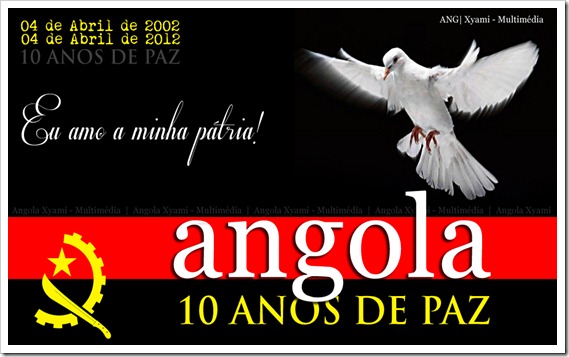
![20120404_clipboard01[1] 20120404_clipboard01[1]](http://lh5.ggpht.com/-dVlsnAl9K84/T3wPDfyj2dI/AAAAAAAABhY/6Dn6sFVogy4/20120404_clipboard01%25255B1%25255D_thumb%25255B3%25255D.jpg?imgmax=800)
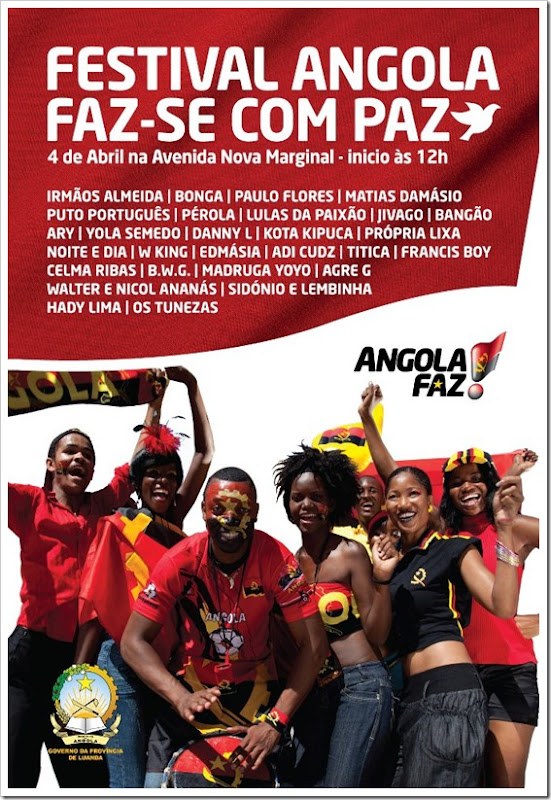
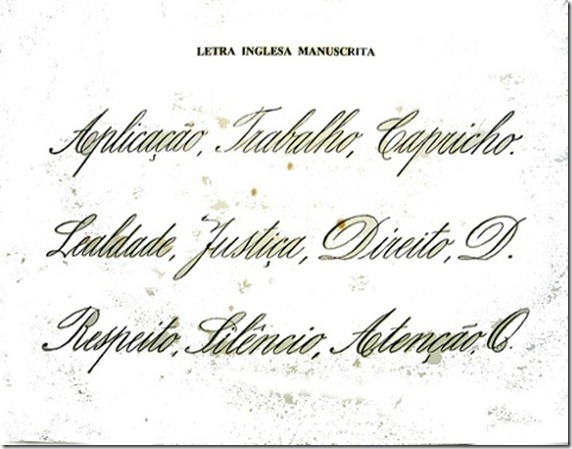
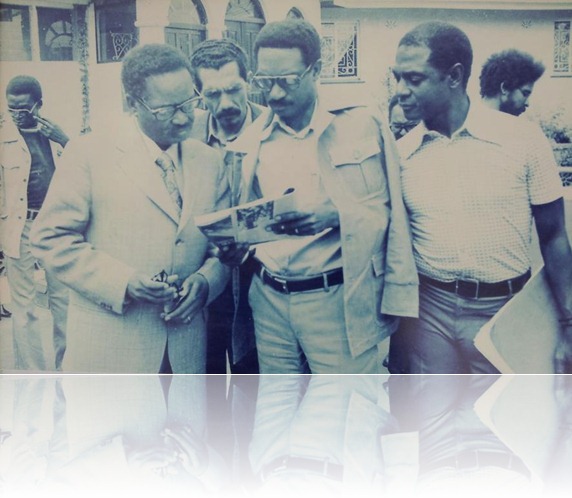



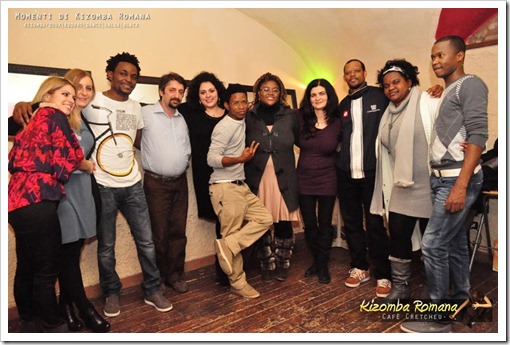
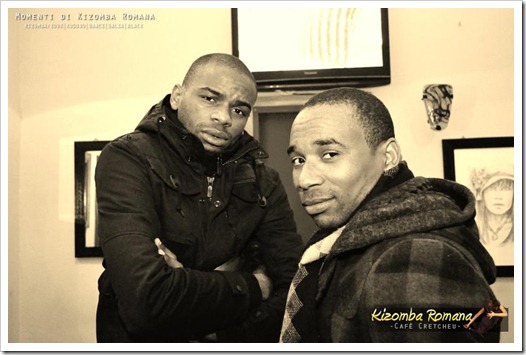
![388681_258178440898639_100001194556151_678744_927683037_n[1] 388681_258178440898639_100001194556151_678744_927683037_n[1]](http://lh6.ggpht.com/-Oe0wo9uOJI4/T0aE7iqFSGI/AAAAAAAABEg/Fv2CDpwzrP4/388681_258178440898639_100001194556151_678744_927683037_n%25255B1%25255D_thumb%25255B2%25255D.jpg?imgmax=800)
![311976_258208954228921_100001194556151_678780_734813195_n[1] 311976_258208954228921_100001194556151_678780_734813195_n[1]](http://lh4.ggpht.com/-ombWpZnxAhw/T0aE-8WinHI/AAAAAAAABEw/tBfXid6BcjY/311976_258208954228921_100001194556151_678780_734813195_n%25255B1%25255D_thumb%25255B2%25255D.jpg?imgmax=800)

![barack-obama-640_s640x427[1] barack-obama-640_s640x427[1]](http://lh5.ggpht.com/-lvOchqNoFd4/TzxUosgW-tI/AAAAAAAAA84/CFNzz_Vku3E/barack-obama-640_s640x427%25255B1%25255D_thumb%25255B2%25255D.png?imgmax=800)
![e23fe598428b02cde1426ec5271878ed272f0365_large[1] e23fe598428b02cde1426ec5271878ed272f0365_large[1]](http://lh3.ggpht.com/-Pu3OKPalzpc/Ty2iEg6jlkI/AAAAAAAAA74/y1kUEaxQXVI/e23fe598428b02cde1426ec5271878ed272f0365_large%25255B1%25255D_thumb%25255B3%25255D.jpg?imgmax=800)

![402647_143450292438323_100003200594026_190067_1818493966_n[1] 402647_143450292438323_100003200594026_190067_1818493966_n[1]](http://lh5.ggpht.com/-lEG6uAliqYo/TygZWFQocFI/AAAAAAAAA5U/MUaB8EteScE/402647_143450292438323_100003200594026_190067_1818493966_n%25255B1%25255D_thumb%25255B2%25255D.jpg?imgmax=800)

![title[1] title[1]](http://lh3.ggpht.com/-dqoCk-kmazQ/Txd5XUC26BI/AAAAAAAAA3E/OSyDv4BMHgo/title%25255B1%25255D_thumb%25255B1%25255D.png?imgmax=800)
![FOTO HISTÓRICA: A chegada do corpo do Saudoso Presidente Dr. Agostinho Neto à Luanda...[1] FOTO HISTÓRICA: A chegada do corpo do Saudoso Presidente Dr. Agostinho Neto à Luanda...](http://lh4.ggpht.com/-mPR8cqqnIGs/Tw10RAxWTeI/AAAAAAAAA10/ffUuPVoKb6M/405725_343573269004424_100000552602681_1299123_2106106485_n%25255B1%25255D_thumb%25255B10%25255D.jpg?imgmax=800)
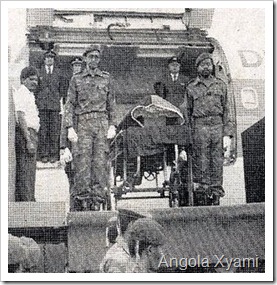

![Angola Xyami – Best Articles Directory, Free articles for your website, eZine or newsletters![1] Angola Xyami – Best Articles Directory, Free articles for your website, eZine or newsletters!](http://lh5.ggpht.com/-UJT1B0zm3SA/TwxyKsfuRjI/AAAAAAAAA0U/Q893Jy-Z-L0/tumblr_lq4sq5HDYj1r1vfbso1_500%25255B1%25255D%25255B6%25255D.jpg?imgmax=800)

![406848_218565668229153_100002271630784_490363_2090113791_n[1] 406848_218565668229153_100002271630784_490363_2090113791_n[1]](http://lh3.ggpht.com/-D7_D15zzmdA/TwwoR2Gn3ZI/AAAAAAAAAz0/2UkzFfXfdBQ/406848_218565668229153_100002271630784_490363_2090113791_n%25255B1%25255D_thumb%25255B7%25255D.jpg?imgmax=800)
![2555251-the-beautiful-girl-dreams-as-to-spend-money[1] 2555251-the-beautiful-girl-dreams-as-to-spend-money[1]](http://lh4.ggpht.com/-K51mgR44Mgk/TwuSCnjykII/AAAAAAAAAzQ/srivtuJLEv0/2555251-the-beautiful-girl-dreams-as-to-spend-money%25255B1%25255D_thumb%25255B2%25255D.jpg?imgmax=800)